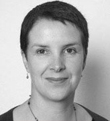![iStock [ktsimage]](https://blogs.ed.ac.uk/teaching-matters/wp-content/uploads/sites/7480/2017/10/iStock-636754212-ktsimage-crop.jpg)
The concept ‘research led teaching’ (RLT) is not simply defined and can, as Professor Sarah Cunningham-Burley noted in her recent blog on this topic, involve “multiple modes of research-led learning”. She also went on to say that it can take “…staff and students out of their comfort zones to confront other disciplines, approaches and contexts..”.
The notion of RLT taking us out of the comfort zone resonates strongly with my own experiences and that of our students with the Year 1 module – Health, Ethics and Society (a social science and ethics module taught within the undergraduate medicine programme, MBChB).
I have always had a scholarly interest in pedagogical research and use such research to inform my teaching. There is a growing literature on teaching social and behavioural sciences in medical education [if you are interested I can pass on some references] that highlights a number of key fields of discussion. These discussions, including models of curricular integration and the potential role of community-based learning, continue to guide my development of the module. Yet in doing so I am very aware of not being as fully immersed as I would be in my own research area and would not consider myself as expert in these fields. While educational research is central to my work, I find this feeling of engaging with research in a more utilitarian way a little uncomfortable.
Feedback from students also clearly indicates that engaging with research in the context of this module pushes many of them out of their comfort zone as well. Students are already familiar with the idea of ‘evidence based medicine’ but, at this early stage of their degree, inevitably have a limited sense of what this involves and a rather idealised view of the translation of research evidence into practice.
Throughout the module I emphasise the importance of research evidence in shaping our understanding of the subject matter (for example lay perspectives on health and illness) and the importance of adopting a critical approach to evidence. This is challenging for some students, who draw a distinction between what they consider to be knowledge that has to be acquired and which is then considered part of ‘evidence-based medicine’, and knowledge that is simply regarded as common sense (for example, how people experience health and illness).
To address this directly, I give students cases to consider, for example ‘why did John delay in seeking help when experiencing chest pains?’ They are all able to offer some answers, despite it being unlikely that have direct experience that aligns with the case. The questions I present reflect a social world which the students are part of, and for a long time I struggled with how to overcome this sense of ‘already knowing’. More recently I have somewhat shifted position; rather than challenging the knowledge they bring with them, I try to build on it, using it as the springboard for a critical discussion about the relevance of social science research for medical practice – what we think we know; what research tells us; and why it is important to have this knowledge.
Encouraging our medical students to consider research and evidence in broader ways that also include social science research is definitely leading them to the edge of their comfort zone. Asking them then to consider that the process of research, the medical knowledge produced and the application of that knowledge in medical practice are socially constructed evokes a keen state of uncertainty: we need to ensure that we support our students so that they can become comfortable with the discomfort that learning about and reflecting on the nature of evidence may induce.
Next steps
For more information on research-led teaching and learning see the following Teaching Matters blogs:
- Exploring research-led teaching at Senate
- Research-led teaching and learning – in search of meaning
- Research-led teaching and the research/teaching nexus


 Jeni Harden
Jeni Harden